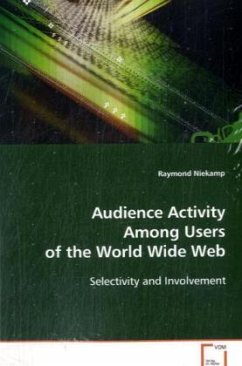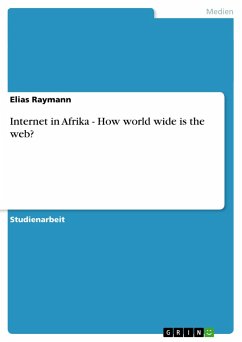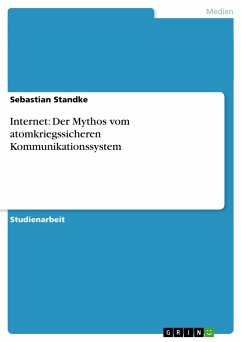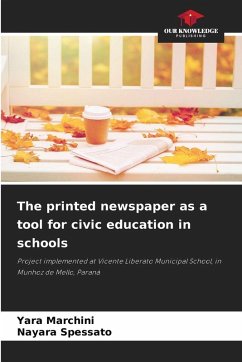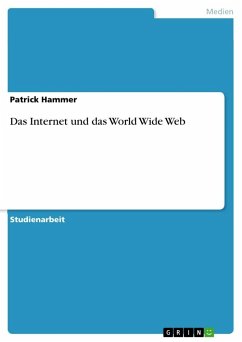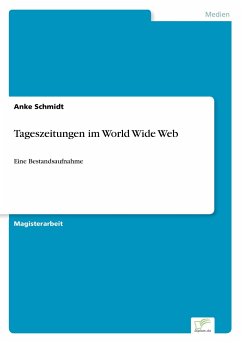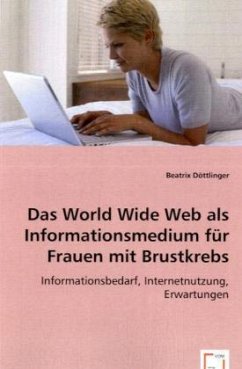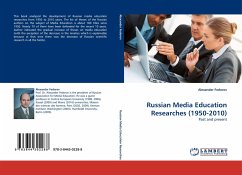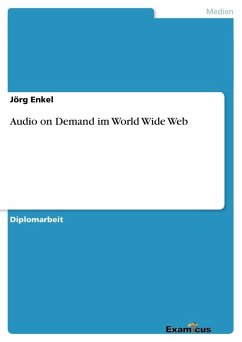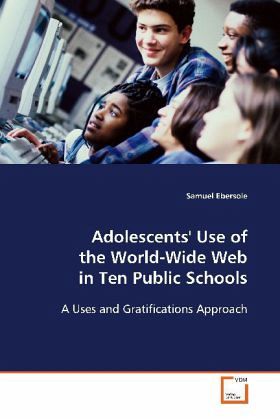
Adolescents' Use of the World-Wide Web in Ten Public Schools
A Uses and Gratifications Approach
Versandkostenfrei!
Versandfertig in 6-10 Tagen
39,99 €
inkl. MwSt.

PAYBACK Punkte
20 °P sammeln!
Public school students' attitudes and opinions towardthe World-Wide Web were analyzed to discover if andhow they affect students' use of this new educationalmedium in a school setting. An exploratory principlecomponents analysis of forty use statements resultedin an eight-factor solution. Cross-tabular analysesrevealed significant differences in the way thatstudents describe their use of the WWW. Gender, gradelevel, and amount of time spent using the WWW wereused to create between-group comparisons in the sevenWWW use categories that made up thecomputer-administered survey instrument. The fina...
Public school students' attitudes and opinions toward
the World-Wide Web were analyzed to discover if and
how they affect students' use of this new educational
medium in a school setting. An exploratory principle
components analysis of forty use statements resulted
in an eight-factor solution. Cross-tabular analyses
revealed significant differences in the way that
students describe their use of the WWW. Gender, grade
level, and amount of time spent using the WWW were
used to create between-group comparisons in the seven
WWW use categories that made up the
computer-administered survey instrument. The final
phase of data analysis was a content analysis of
sites visited by students. The commercial sites
received the lowest rating for "suitability for
academic research" of all the domain names. And while
students reported their purpose for using the WWW as
"research and learning" fifty-two percent of the
time, the coders found only twenty-seven percent of
the sampled sites to be "suitable" for that purpose.
the World-Wide Web were analyzed to discover if and
how they affect students' use of this new educational
medium in a school setting. An exploratory principle
components analysis of forty use statements resulted
in an eight-factor solution. Cross-tabular analyses
revealed significant differences in the way that
students describe their use of the WWW. Gender, grade
level, and amount of time spent using the WWW were
used to create between-group comparisons in the seven
WWW use categories that made up the
computer-administered survey instrument. The final
phase of data analysis was a content analysis of
sites visited by students. The commercial sites
received the lowest rating for "suitability for
academic research" of all the domain names. And while
students reported their purpose for using the WWW as
"research and learning" fifty-two percent of the
time, the coders found only twenty-seven percent of
the sampled sites to be "suitable" for that purpose.



